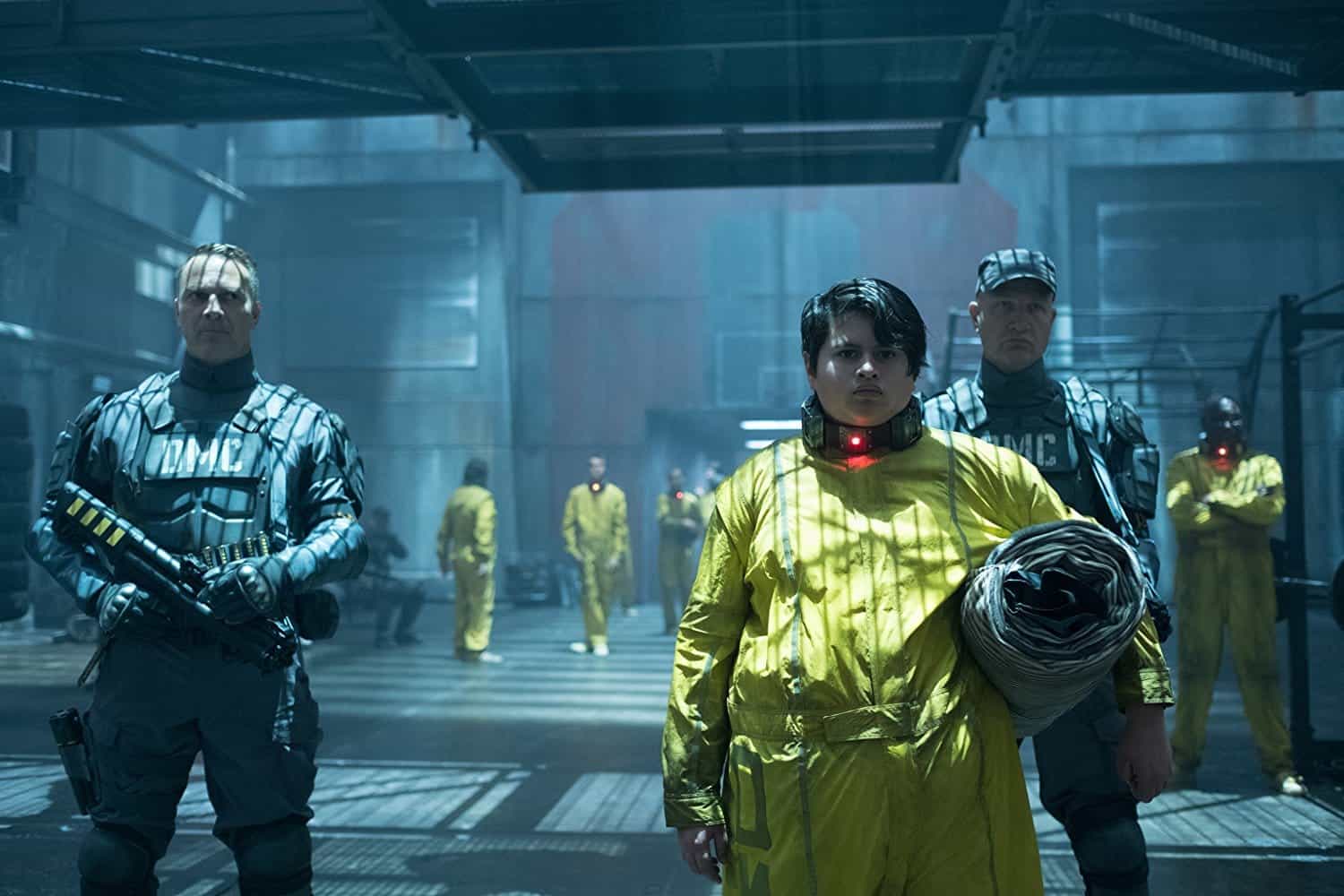
Once again, the Merc with the Mouth is sending up superhero movies and referencing all kinds of pop culture, including classic cinema. A lot of the jokes will work best if you’ve seen the marks before you see Deadpool 2. The sequel certainly expect you to have seen all the entries in the X-Men franchise, particularly Logan, the ending of which it spoils in its first few minutes.
Other essential titles are less likely to have been seen by much of Deadpool‘s audience. I’ve compiled a list of some of these, most of them not directly alluded to by the movie or its title character, and recommend they be seen to better appreciate Deadpool 2 on your next viewing.
A Night at the Opera (1935)
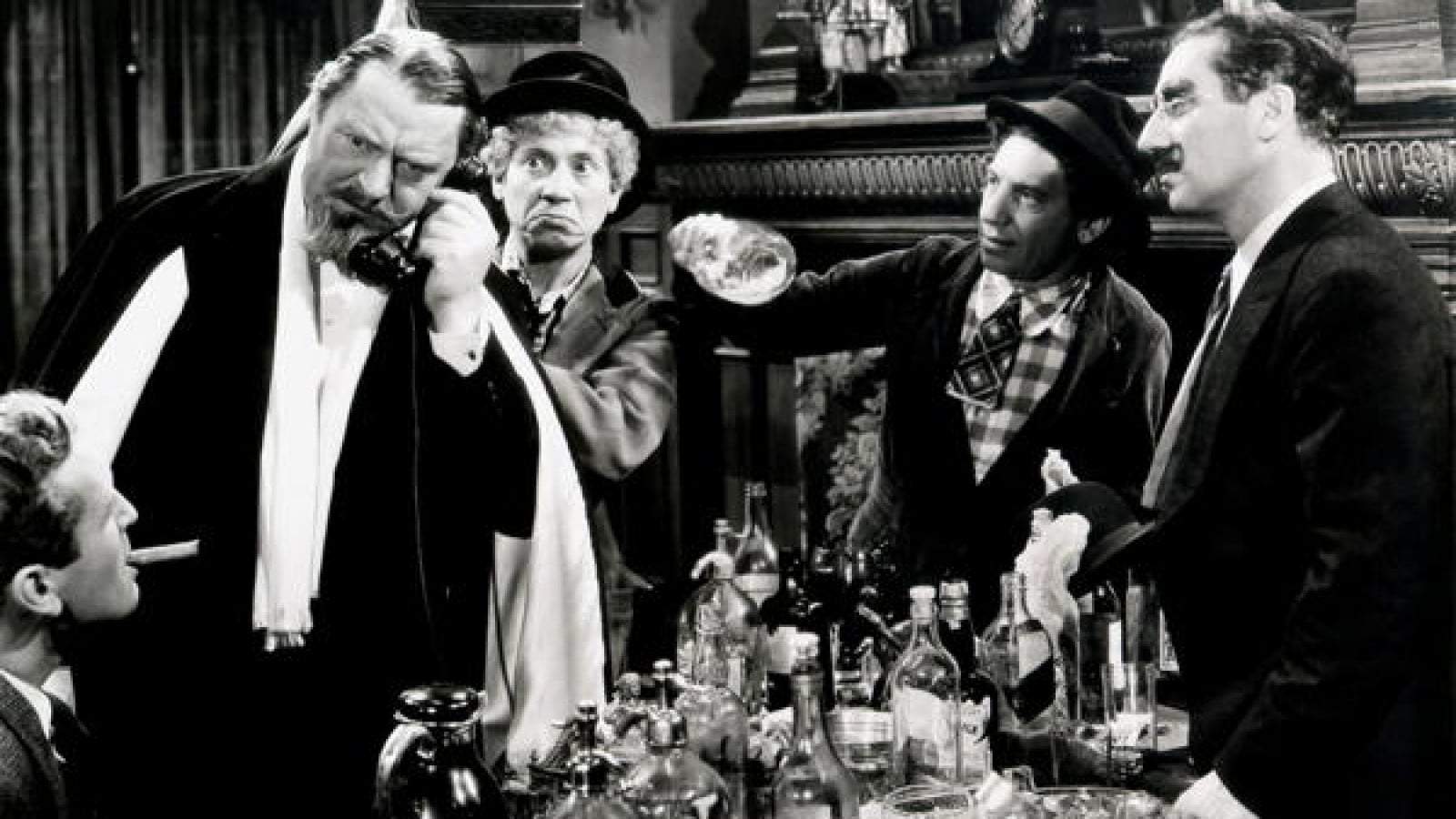
Ryan Reynolds may want to be the Charlie Chaplin or Buster Keaton of raunchy superhero fare, and he’s definitely good at making Deadpool a great pantomime character a lot of the time, but I consider his performance to be broader in its humor, especially because of his vocal quips, and more akin to the Marx Brothers. Deadpool is Groucho, Harpo, and Chico all in one — maybe no Zeppo or Gummo, however.
For any Deadpool 2 fans who want an introduction to the Marx Brothers, my favorites stand as the looser, more anarchic vehicles such as Duck Soup and Animal Crackers. But I highlight A Night at the Opera here because like Deadpool 2, it took its wild and crazy lead performers, best suited for light plots serving merely as foundations for their outrageous shenanigans, and gave them more fleshed-out story and higher production value.
The film, which was the Marxes first for MGM, is also, like Deadpool 2, still hilarious even if it feels like there’s just too much going on, some of it bumping against the chaos of the stars with its sappier moments. So that makes the first Deadpool the equivalent of Duck Soup, which was the brothers’ last movie at Paramount, made just before this effort. Their plots are no doubt convoluted but the plot doesn’t matter as much there as the barrage of comedy.
Yentl (1983)
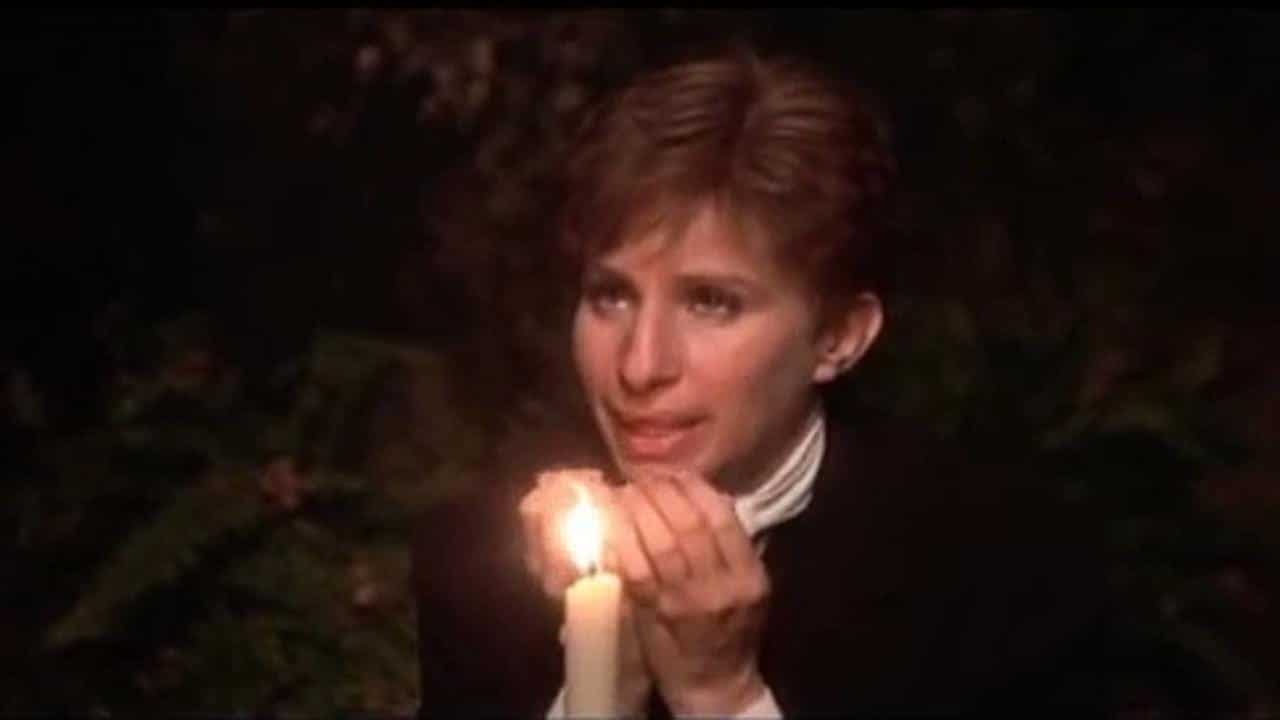
Deadpool is a comedian for all audiences, so long as they can appreciate or at least tolerate his more immature predominant shtick. How many of the character’s fans have wide enough tastes that they’re as quick to identify a clip of Barbra Streisand in Yentl or a Say Anything… homage as they are a joke about Thanos in Avengers: Infinity War or derogatory mention of Justin Bieber?
Maybe there aren’t a lot, but that’s part of why Deadpool is so cool. He wants to expose his younger fans to all sorts of other parts of pop culture, including the likes of Celine Dion and Cher and Streisand, even if just for kitschy reason. You don’t have to have seen Yentl before seeing Deadpool 2 to appreciate the running joke about its Oscar-nominated song “Papa, Can You Hear Me?” seemingly being ripped off by Disney’s Frozen for “Do You Want to Build a Snowman?” But now you might be curious enough to check it out after.
There’s not really much other relevance to be found in your enjoyment of Yentl. Maybe you can draw some comparison between the anti-mutant fundamentalist Headmaster (Eddie Marsan) and the oppression of the patriarchal Orthodox Jewish community. The movie stars Streisand as a young woman who dresses as a man in order to attend a yeshiva (religious school), which is forbidden to girls. There’s a lot of gender masquerade in the X-Men universe, particularly from the shapeshifting character Mystique, but there’s none in this movie installment.
Annie (1982)
 Not only did Reynolds sing “Tomorrow” in a weird promotional appearance on a Korean TV series, but the classic musical number is also featured in Deadpool 2. Specifically, it’s the version sung by Alicia Morton in Disney’s 1999 TV movie version of Annie, which is a weird choice given that it’s not the most famous of adaptations or renditions. I’ve admittedly never seen that version, which stars Victor Garber as Daddy Warbucks, Kathy Bates as Miss Hannigan, and X-Men franchise veteran Alan Cumming as Rooster. Maybe it’s good, but I can only vouch for this first film adaptation of the Broadway classic.
Not only did Reynolds sing “Tomorrow” in a weird promotional appearance on a Korean TV series, but the classic musical number is also featured in Deadpool 2. Specifically, it’s the version sung by Alicia Morton in Disney’s 1999 TV movie version of Annie, which is a weird choice given that it’s not the most famous of adaptations or renditions. I’ve admittedly never seen that version, which stars Victor Garber as Daddy Warbucks, Kathy Bates as Miss Hannigan, and X-Men franchise veteran Alan Cumming as Rooster. Maybe it’s good, but I can only vouch for this first film adaptation of the Broadway classic.
Directed by none other than John Huston (not that it’s among his best works), the musical stars Aileen Quinn as the precocious ginger orphan based on the character from the iconic comic strip “Lil Orphan Annie.” She sings her way into the hearts of a wealthy bald businessman (here played by Albert Finney) and his staff, which frees her from an orphanage run by a terribly cruel woman (Carol Burnett as Hannigan), but she’s also later pursued by some other bad people (Tim Curry as Rooster and Bernadette Peters as his partner in crime) who eventually want her dead.
Hey, that all sounds a lot like the plot of Deadpool 2. Julian Dennison is lil orphan Russell, aka Firefist, a kid with a hard knock life who resides at an orphanage run by a terribly cruel man (the Headmaster). Fortunately, he’s sort of rescued from the place by a bald antihero (Deadpool), who like Warbucks isn’t immediately interested in being too close with the kid. Eventually, though, Russell is pursued by another seemingly bad person (Cable), who wants the orphan dead. Then the bald guy starts to love the kid, saves him from being killed, and winds up with a new addition to his family. Bet your bottom dollar there’s a reason “Tomorrow” is in the movie.
48 Hrs. (1982)
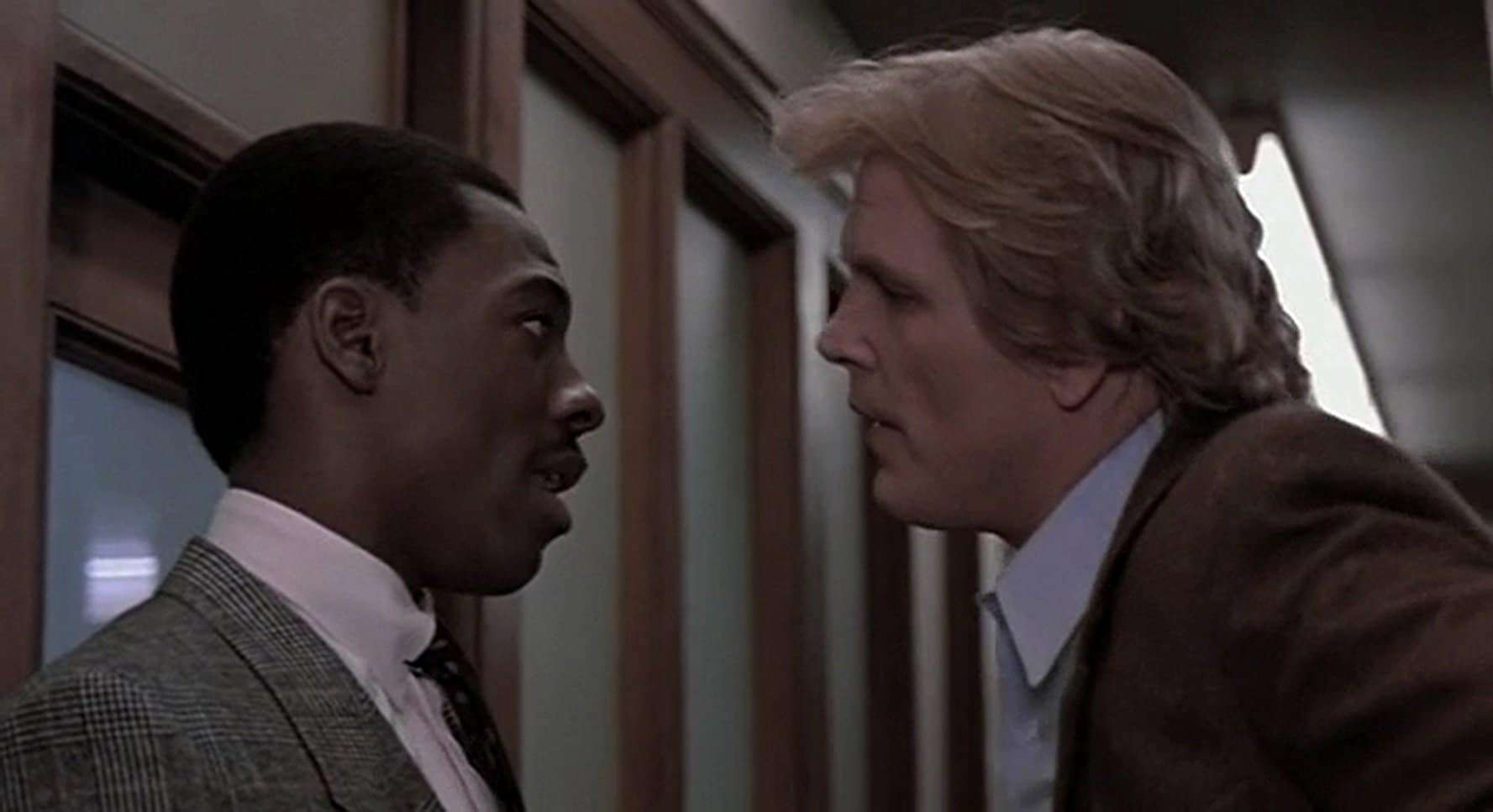
One of Annie‘s fellow top 10 box office hits of 1982, Walter Hill’s trailblazing “buddy cop” movie is one of the few titles not directly referenced in Deadpool 2 that has been cited in interviews as an influence on the sequel. Specifically, director David Leitch told Fandango that 48 Hrs. was an inspiration for the movie, along with Jackie Chan films and The Notebook. Before acknowledging it by name, here’s what he said in response to what fans could expect from the relationship between Deadpool and Cable in Deadpool 2:
“I don’t want to get into too much of where it leads, but I’ll just say that their dynamic as protagonist/antagonist is sort of classic buddy-cop fare. You have fast-talking Eddie Murphy, and a no-nonsense Nick Nolte sort of vibe that’s going on. That is really going to be entertaining for audiences.”
Not only is Deadpool the Eddie Murphy role and Josh Brolin’s Cable the Nick Nolte part in a basic buddy cop analogy, but the plot of this action comedy does have a major plot parallel that can’t be ignored. In both movies, the duo first meets at a prison. However, instead of a guy breaking into a prison to kill a kid that’s also incarcerated there, in 48 Hrs., the premise is that Nolte’s no-nonsense detective has to borrow Murphy’s prisoner for the titular amount of time so he can help track down a guy who broke a prisoner out of a chain gang. There’s a sequel, 1990’s Another 48 Hrs., also helmed by Hill, but that’s generally accepted as being inessential.
Terminator 2: Judgment Day (1991)
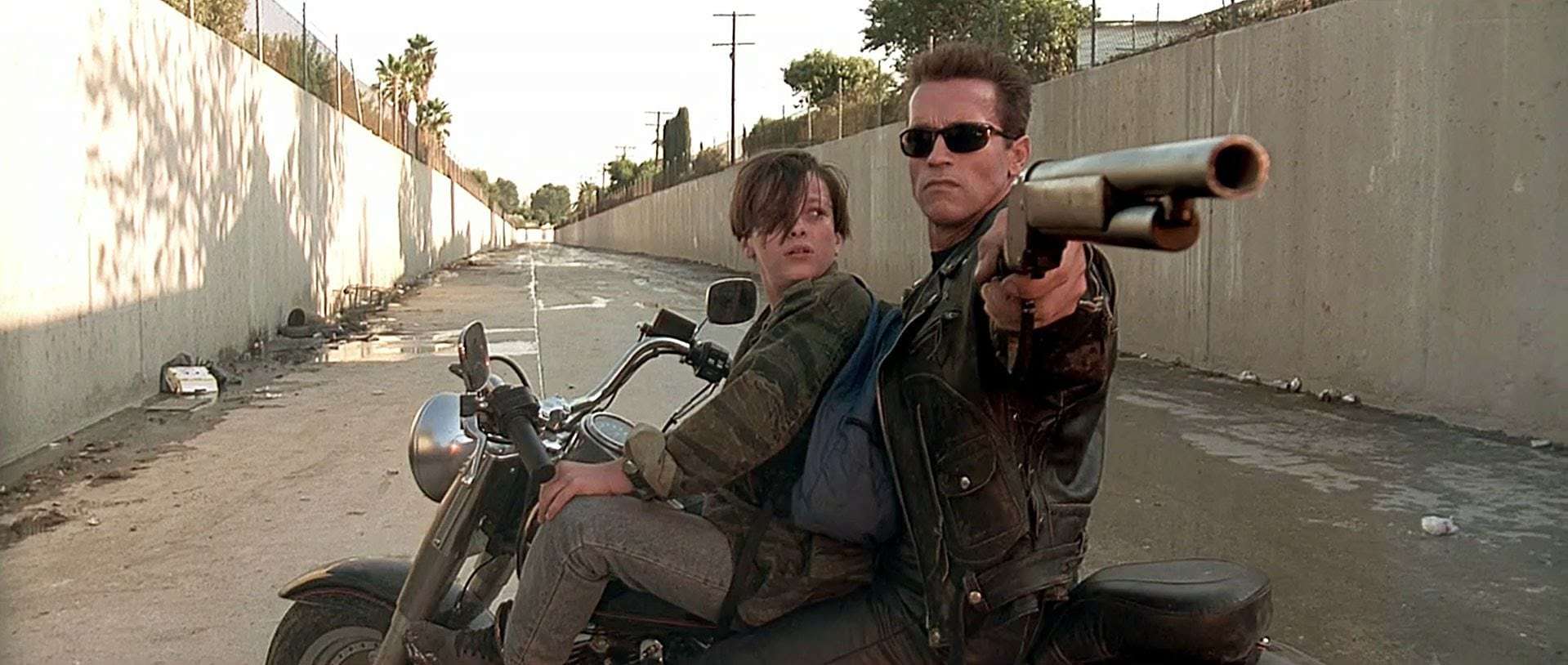
With Deadpool 2 being lauded by many critics (not myself) as a sequel that’s better than the original, here’s another sequel that’s considered by many critics (not myself) as also better than its predecessor. Cable’s arc in Deadpool 2 is so similar to the premise of the Terminator movies that Deadpool didn’t even need to make a direct mention of the franchise and its titular cyborg from the future sent to stop the existence of a future resistance leader.
While I prefer 1984’s The Terminator and would have been fine had there never been any sequels at all, Terminator 2: Judgment Day is a worthy follow-up with a lot more action and better special effects. It’s also funnier, which is arguably not a positive here since much of the humor is really cheesy. The plot is also more in tune with Cable’s story since the target of the Terminator this time is a teenage boy rather than a young woman, and that boy has an unstoppable companion helping to protect him from the time-traveling antagonist.
Bonus: after you’re done watching T2, I have even more movies for you to check out, including Old Yeller, Cyborg 2087, and Short Circuit.
X-Men Origins: Wolverine (2009)
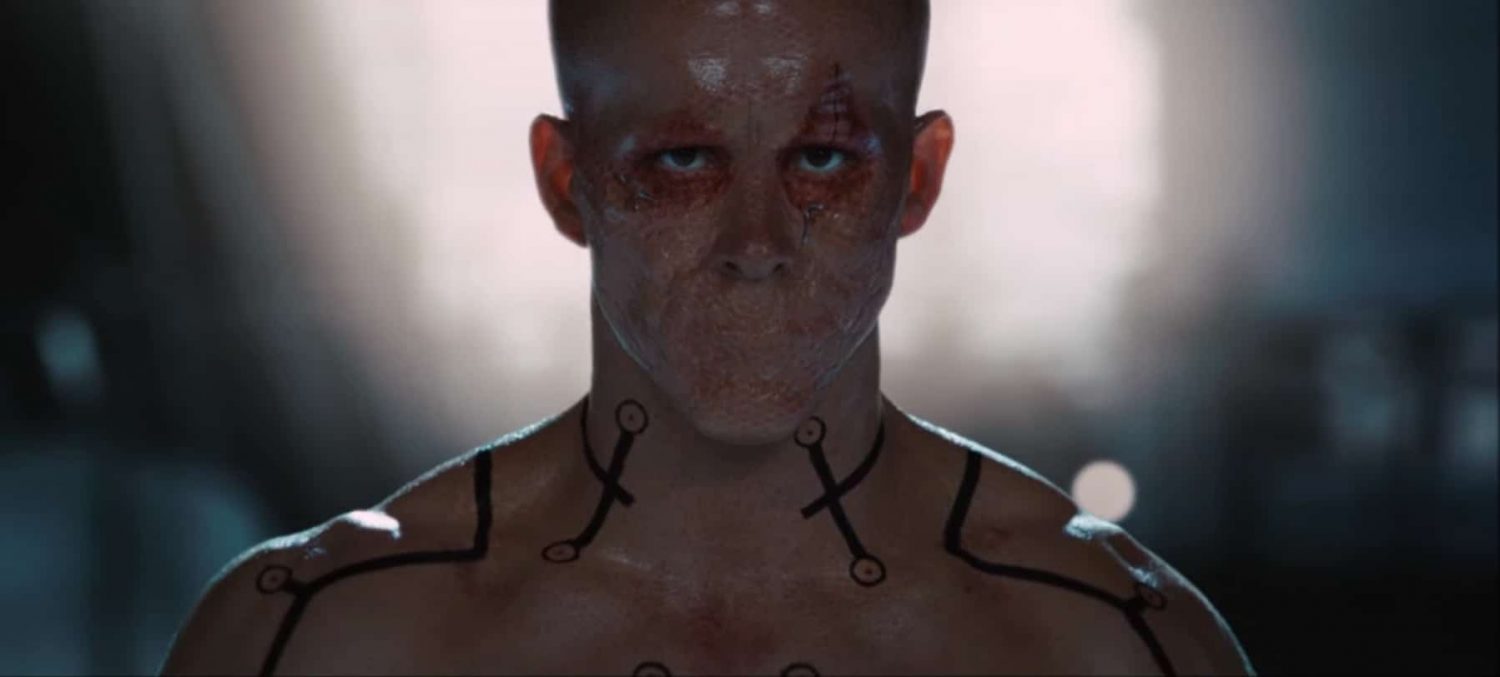 As I mentioned in the intro, there’s an expectation with Deadpool 2 that you’re familiar with the rest of the X-Men movie franchise. But if you didn’t follow along as it was happening, you’re very likely to have skipped this first Wolverine spinoff because it’s known for being really bad. X-Men Origins: Wolverine has the lowest Rotten Tomatoes score of the series with 38%, and it’s the lowest rated by users on IMDb. Yes, it’s even worse than X-Men: The Last Stand and X-Men: Apocalypse.
As I mentioned in the intro, there’s an expectation with Deadpool 2 that you’re familiar with the rest of the X-Men movie franchise. But if you didn’t follow along as it was happening, you’re very likely to have skipped this first Wolverine spinoff because it’s known for being really bad. X-Men Origins: Wolverine has the lowest Rotten Tomatoes score of the series with 38%, and it’s the lowest rated by users on IMDb. Yes, it’s even worse than X-Men: The Last Stand and X-Men: Apocalypse.
So why am I recommending it? Because Deadpool still wants you to watch bad movies. The sequel doubles down on the jokes about Reynold’s original portrayal of the character in X-Men Origins: Wolverine as well as his involvement with the much-hated DC movie Green Lantern. The latter you don’t have to have seen to get its gag this time around — Deadpool killing the Reynolds who agreed to be in the movie is hinged solely on your awareness that it’s a maligned entity. Yet the Deadpool 2 mid-credits bit‘s nod to this movie works better if you’re familiar with it.
Hunt for the Wilderpeople (2016)
Many actors in Deadpool 2 wind up involved in references to their other movies. As noted above, Reynolds’s past superhero movie roles are marks for gags. Brolin’s gig as Thanos in the Marvel Cinematic Universe is also alluded to for humor’s sake, and there’s a nice little throwaway nod to The Goonies. Julian Dennison’s breakout film, Hunt for the Wilderpeople, is not referenced in a joke or visual allusion, but it definitely relates to Dennison’s character in Deadpool 2. Firefist is basically Ricky Baker with super powers.
In Leitch’s interview with Fandango, the director acknowledges that Dennison’s character in Deadpool 2 is not so much informed by his character from Wilderpeople — even if both kids are parentless juvenile delinquents who wind up paired with a cranky man as an unlikely father figure and both kids clearly love rapper Tupac Shakur — so much as both are pure Dennison. “When we were looking for a person to play his character, there was only one name that came to mind,” Leitch says. “It’s sort of a tailor-made character for him.”
Hunt for the Wilderpeople, which was playing in theaters in its native New Zealand at the same time as the first Deadpool, is written and directed by Taika Waititi, who similarly has become a bigger name recently by working on a movie based on Marvel Comics characters — Thor: Ragnarok. Dennison plays Ricky Baker, a troubled teen who winds up on the run in the woods befriending his reluctant foster father (Sam Neill). It’s very funny, and it has some great action for an indie coming-of-age movie. It also features Ricky Baker creating haikus, so Stack got Dennison to come up with this one for his Deadpool 2 character:
My name is Russell Collins.
I am Firefist.
I have the best super powers.
RBG (2018)
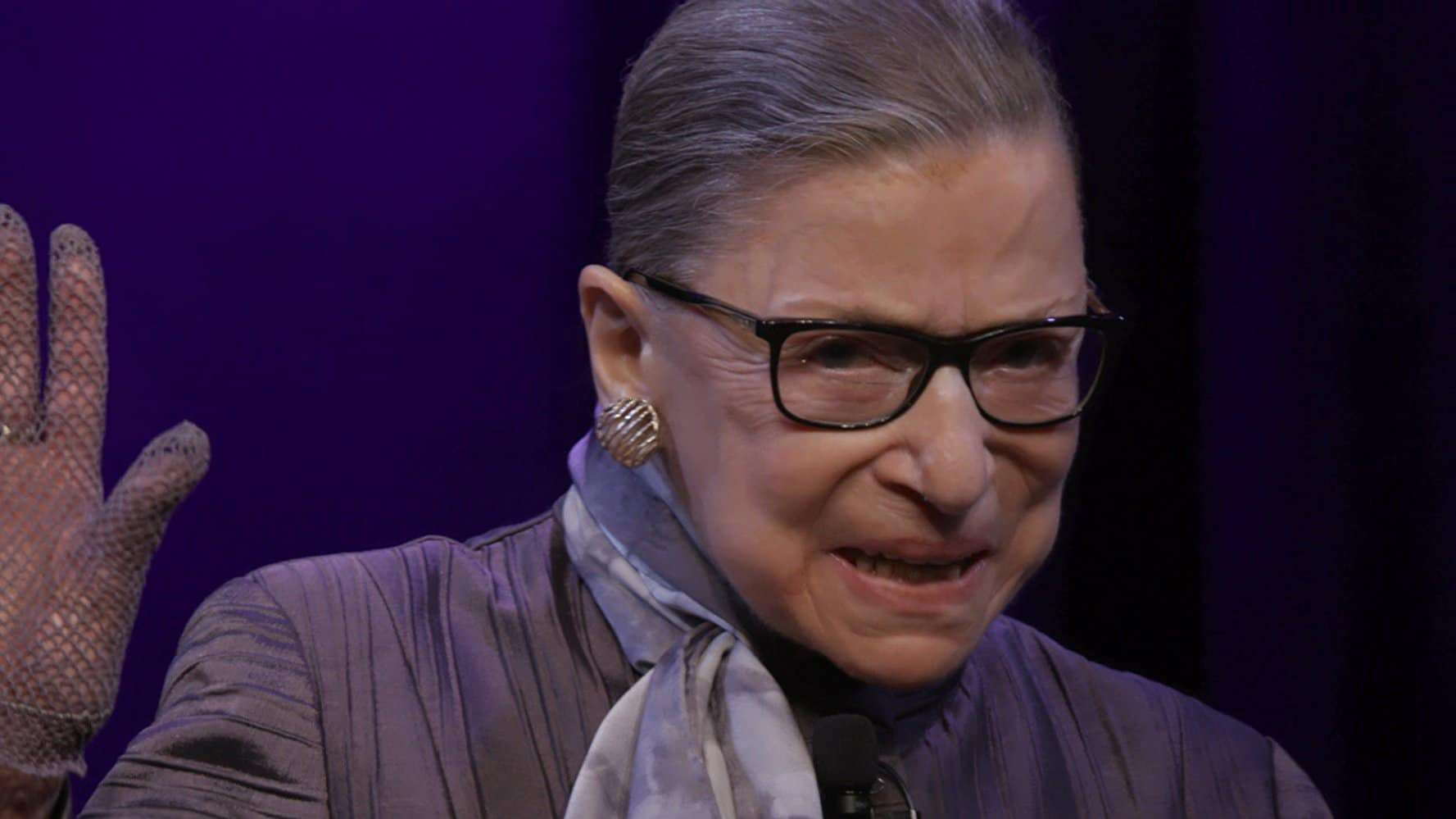
For this week’s documentary selection, I’d have loved to have recommended an essential film on the issue of gay conversion therapy and camps, to go with the Headmaster’s metaphorical mutant reeducation center. But I don’t know any that I can vouch for enough. So I’m going with this brand new nonfiction release, which was a big enough hit in its debut last weekend that it was one of the top 10 movies at the box office.
What does RBG have to do with Deadpool 2? It’s a documentary about US Supreme Court Justice Ruth Bader Ginsberg, who is briefly celebrated in the Deadpool sequel. Blink and you’ll miss it, but there’s a photo of the notorious RBG among the candidates being considered for X-Force. For many people, especially the young women who see her as an iconic champion of gender equality, she’s considered a real-life superhero. And like Deadpool, she’s got a reputation for being a bold, rebellious voice of reason through her history of dissenting opinions in Supreme Court cases.
At 85 years old, Ginsburg is also, like Deadpool, defying mortality by proving to be an athletically fit badass — see her committed to her workout routine in RBG, which mostly chronicles her life and work but also showcases her current daily life. Part of her history that’s highlighted is her friendly bond with the late justice Antonin Scalia, her adversary on the bench, which is like Deadpool’s eventual friendly bond with his adversary, Cable. Okay, I’ll stop forcing parallels. Just see RBG and get to know one of the most notable public figures of our time.
Related Topics: Deadpool, Movie DNA
